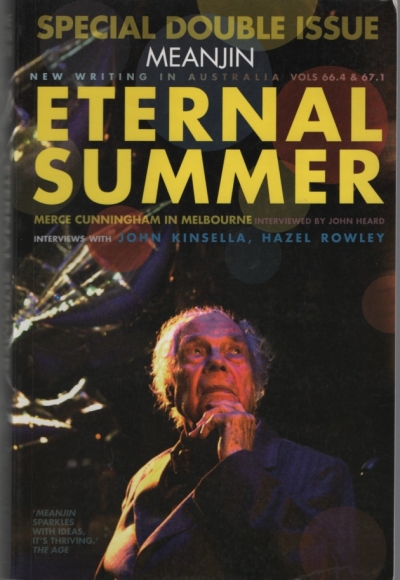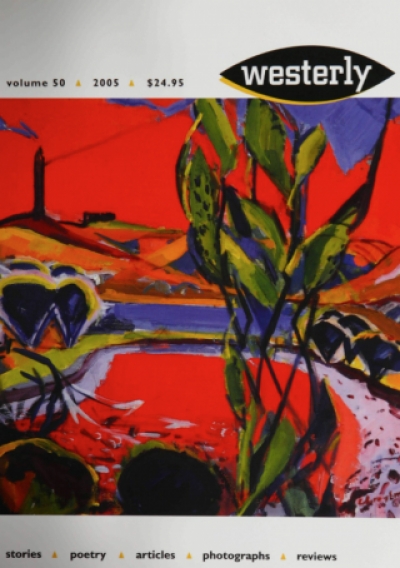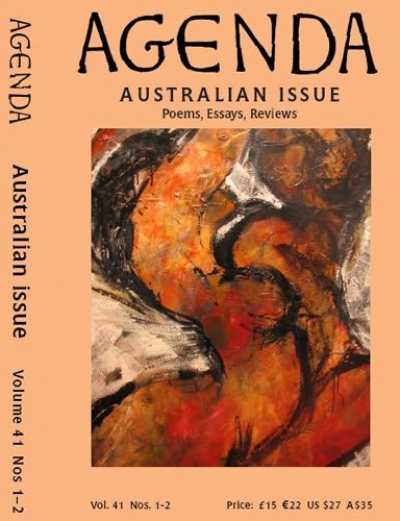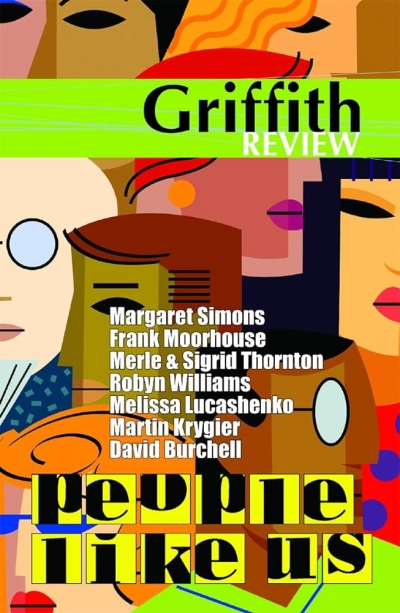Literary Journal
Meanjin, Vol. 66, No. 4 & Vol. 67, No. 1 edited by Ian Britain & Griffith Review 20 edited by Julianne Schultz
by Lyn McCredden •
Westerly vol. 50, November 2005 edited by Delys Bird and Dennis Haskell & Australian Literary Studies vol. 22, no. 2, 2005 edited by Anne Pender and Leigh Dale
by Maria Takolander •
Agenda edited by Patricia McCarthy & Jacket 28, October 2005 edited by John Tranter
by Lisa Gorton •
Griffith Review 8 edited by Julianne Schultz & Heat 9 edited by Ivor Indyk
by Michael Williams •




